“You do it for the love. Love won’t put bread on the table, but you do it for the love.”
Published on the 5th of November, 2022
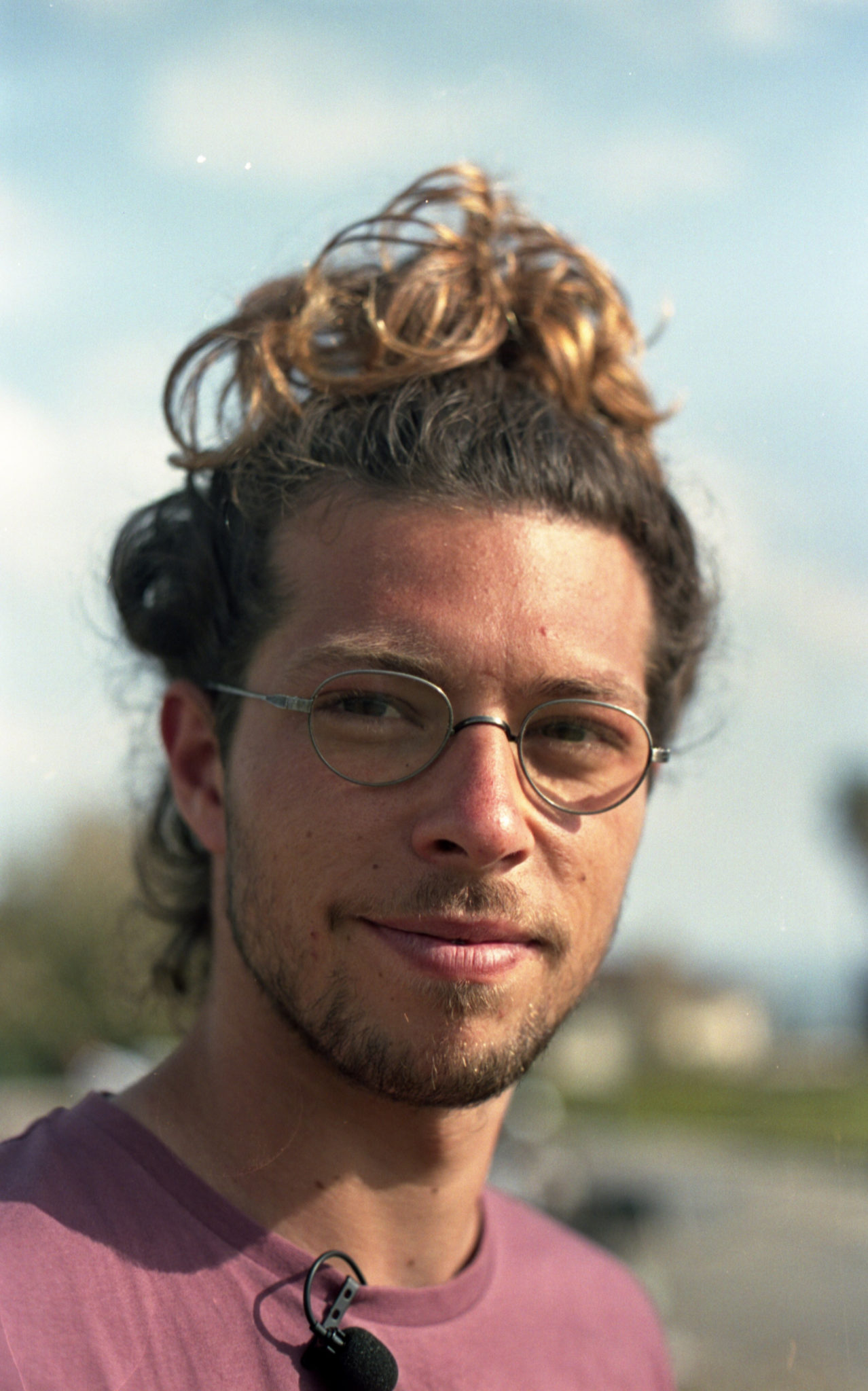
João Duarte, also known as Saint John Mary is a Portuguese multi-instrumentalist that likes to make music from the soul, to the soul. Despite being surrounded by super-talented musicians for a long time, it was not until recently that João Duarte decided to try out the guitar. With that, he started his beautiful journey.

Today Seeking Sound presents João Duarte, born in Oeiras, also known as Saint John Mary. Passionate about skateboarding, surfing, and music, he is paving his way through the release of increasingly elaborate and detailed works. His music can be considered experimental, with a mysterious atmosphere and aura, which contrasts with the open smile with which Saint John Mary welcomed us. On the 19th of March, in Parque das Gerações, we had a more intimate perspective on the life and adventures of this promising multi-instrumentalist and Portuguese producer.
We recommend you have Saint John Mary’s Spotify open by your side while reading the interview so that you can listen to any of the songs mentioned if wanted.
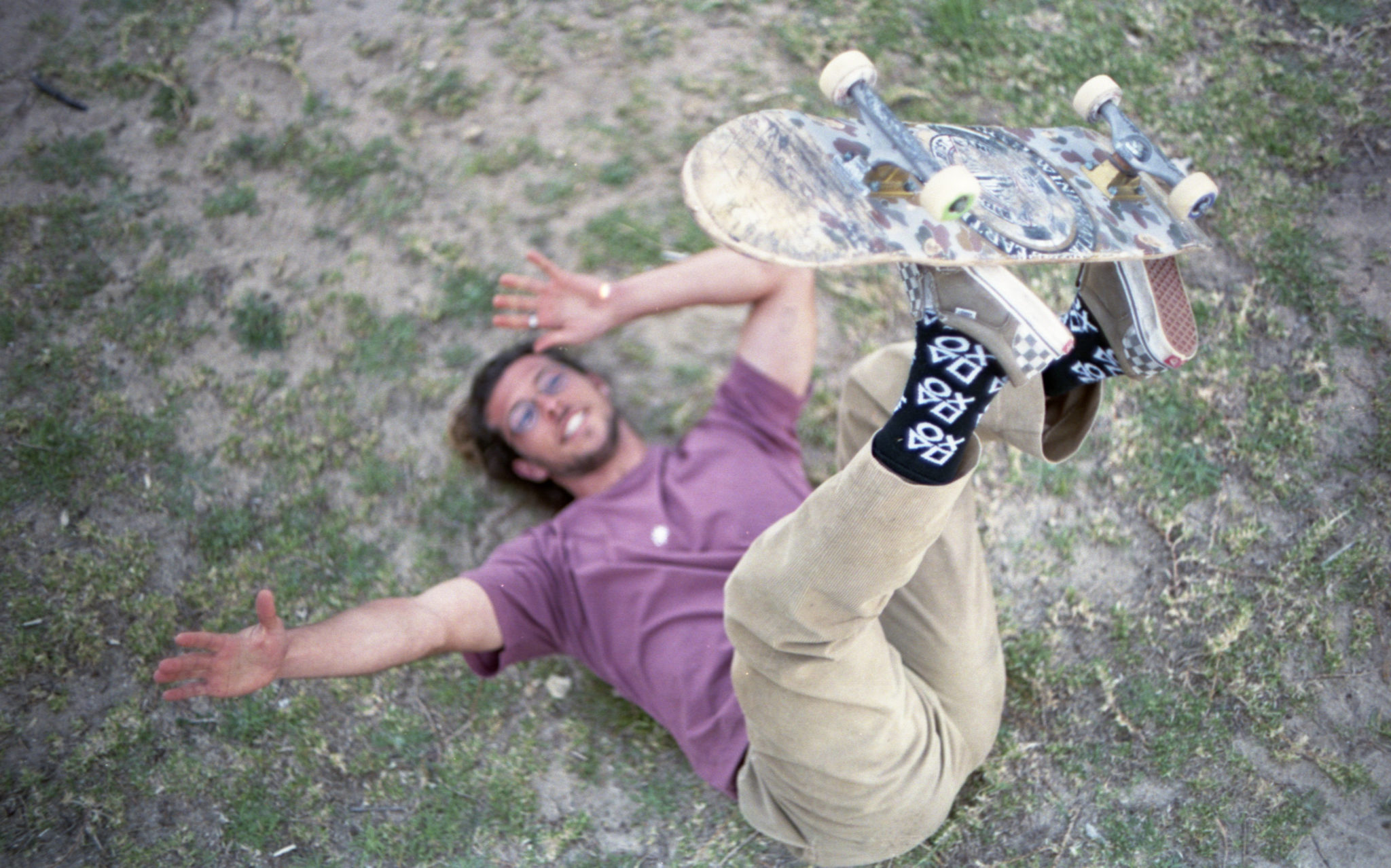
We are here today with Saint John Mary. Introduce yourself in a few sentences, please.
Hello, I’m Saint John Mary, João Duarte, for friends. I make music and I really enjoy providing people with auditory experiences.
What influence has skateboarding had on your life?
I started skating when I was 12 and that’s how I met some of the most important people in my life. I like do-it-yourself skateboarding and creative skateboarding, where everyone has their style and own way of doing things.
What did you listen to at home when you were a kid?
When I was 13, I used to listen to Trance and Reggae.
My parents listened to lots of Pink Floyd, Rui Veloso, and The Beatles. When I was a kid, I didn’t pay much attention to Pink Floyd. It was later when I started listening to them that I realized what good music was about.
You studied at Saint Dominic’s. How was the experience of studying in an international school?
It was interesting because there were a lot of people from different countries studying there. From Asians and Mexicans to South Africans. I think their curriculum is geared towards broadening students’ horizons and trying to make them citizens of the world. On the other hand, with them being an English school and very traditional, sometimes they could be very strict.
What followed Saint Dominic’s?
I studied Marketing Management in college. After that, I also worked as an intern at a multinational company called Havas Village, where I worked as an accountant and dealt with accounts and emails. They quickly understood what I liked to do and put me with the creative director doing more dynamic work.
In the last year of my degree, I did Erasmus in Hannover where I spent 6 months. When it was finishing, The Zanibar Aliens, a band formed by my mates, were starting their 1st European tour. I submitted all my projects 15 days earlier so that I could meet the Zanibar in Berlin and finish their tour with them. I packed all the boxes and bags with my stuff to send everything by mail back to Portugal. I packed myself a bag, grabbed my acoustic guitar, and headed to Jena in the middle of Germany.
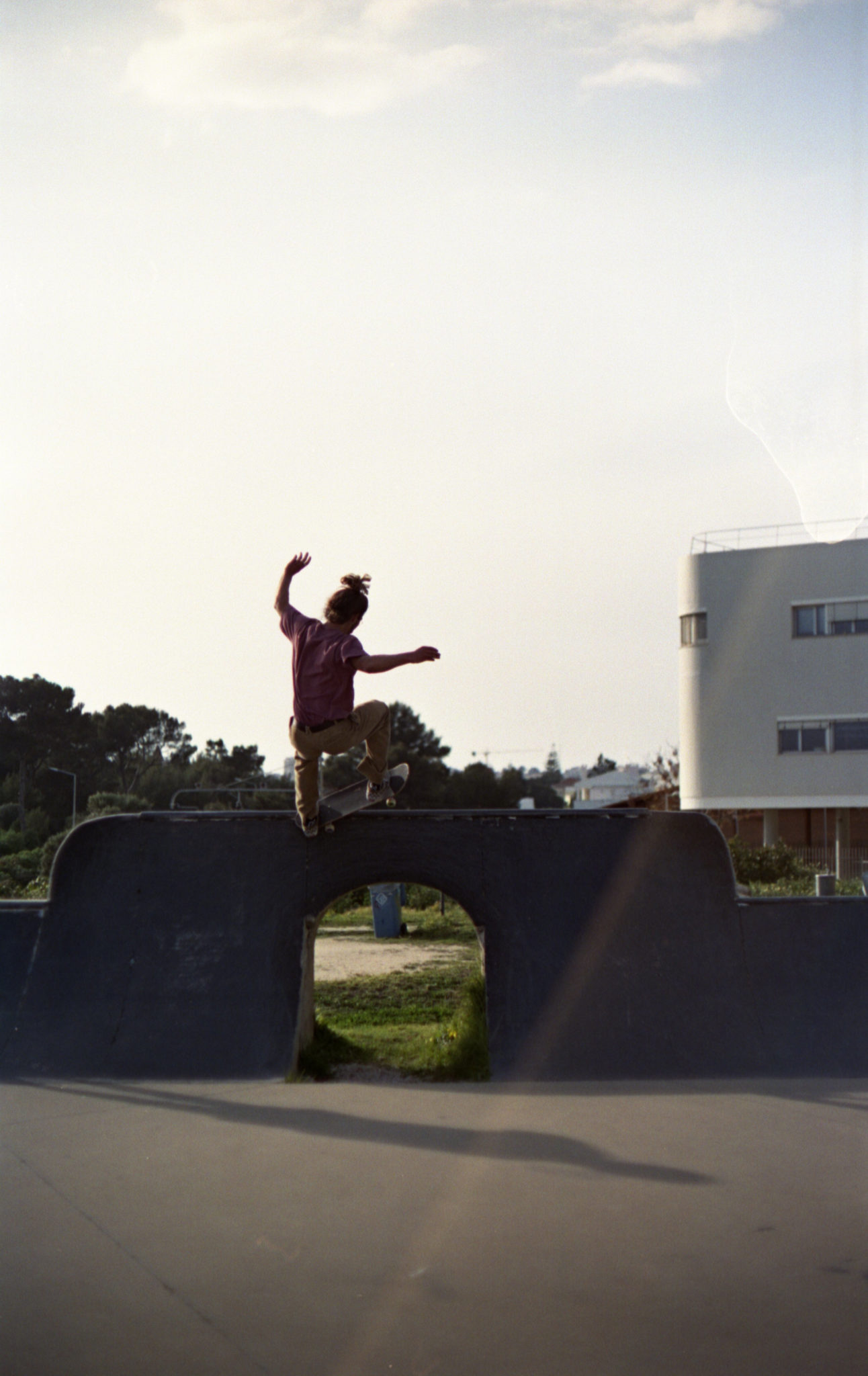

Did you make a lot of music in Hannover?
Yes, in Germany I found this 1980’s flamenco guitar that has a delicious sound with which I composed Traveldo (SJM’s second EP, you can find it on Soundcloud).
Why did you start making music?
I have always had a huge curiosity about exploring and communicating with the world in a way other than speech. When I started picking up the guitar and was able to create melodies, infinite realities that could be explored without rules opened ahead of me.
Right now, I want to be independent of labels and majors. When you start making music exclusively to sell, you are distorting yourself as an artist and losing your essence. I’ve found myself thinking that I must sing so that more people listen to my music. Wrong, I must do what I feel like doing. It’s drinking a glass of red wine on my own and seeing where it takes me.
Are you currently studying at ETIC?
Yes. Music production and creation. Studying might not be my thing, but it never hurt anyone to do it. And this course is practical, which suits me perfectly.
When covid started I was saving money to go to Australia, which ended up not happening. So, when my father offered me the course I did not refuse.
The first year went very well and it was not very difficult. Nowadays, in the second year, I am already feeling more input from the school about the work I should develop. Just the circle of people I have around me to talk about these different thematics is precious. You just can’t talk to everybody about delays, compression, and guitar equalization for example. These are conversations where we all drink knowledge from each other.
Why did you choose Distro Kids to distribute your music?
Distro Kids is a digital distributor that offers several packages depending on your annual fee. These packages range from 0 promotion to some promotion, that is, on Spotify playlists. Since I still have a lot to learn, being a micro artist and still having to establish myself, I’m going to release a lot of projects. So, by paying 20 dollars a year I can publish all the music I want and get 100% royalties.
But you don’t release everything on Spotify. You have recent projects on Soundcloud. Why?
Soundcloud is for demos. It’s for the behind-the-scenes, the unfinished, and the unmastered. Spotify is for official projects. Although I should take Alone with Blue out of Spotify, because I did the mixing and mastering, and it could be a thousand times better. But I won’t take it off because it’s part of my life and journey.
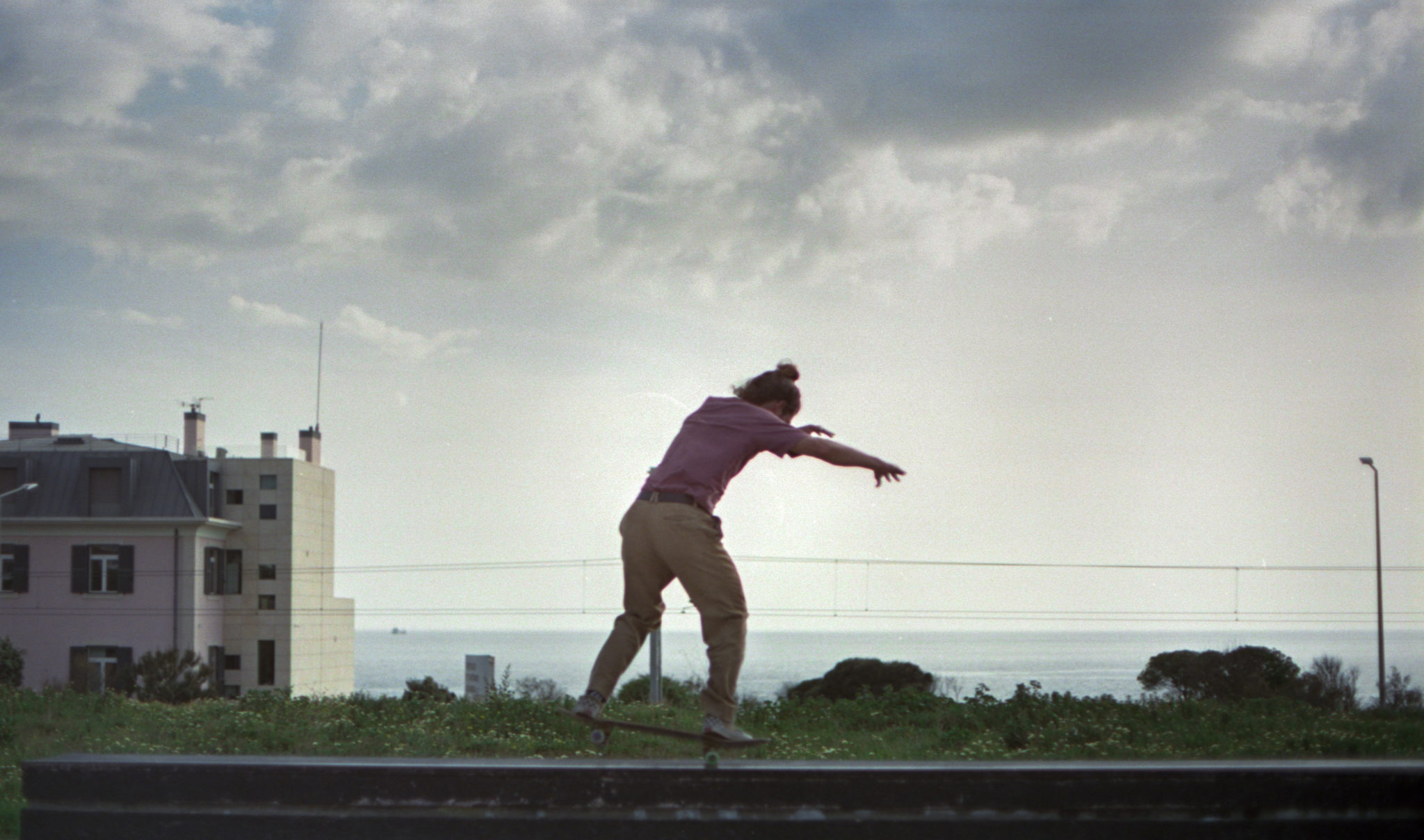
Is Alone with Blue related to your fear of the sea?
I had some traumas when I was a kid. I almost drowned twice. It was always confusing for me to live in Portugal, love skating, and not be able to surf because of a stupid fear. So, I started to deconstruct my fear while observing the sea and the tides. This all happened during Covid when people were adapting to new rhythms of life and not knowing what to do. So, I decided to dedicate myself to surfing.
I currently love surfing. It’s an unbelievable experience to be standing on a wave. This challenge also brought me a different, more pondered thinking and was part of a personal maturation process. It brought more stability to my life and turned out to be further proof of my perseverance.
Alone with Blue was born out of this need to overcome my fears. The EP revolves around that feeling of being alone and surrounded by the sea. On this EP, I experimented with new sounds with the electric guitar, digital drums, and synthesizers.
You also told me that you have a passion for sound design and sensory music for videos and cinema.
In 2020 I worked with Miguel Blanco, a professional big wave surfer. We worked on a short film for which I composed the song “Deep Blue”.
The short film was played at Surf at Lisbon Film Fest at the São Jorge cinema. It was a peak in my career. Suddenly, I went from being a Soundcloud artist to having my whole family invited to go to the São Jorge cinema, to see the short film for which I had composed the music.
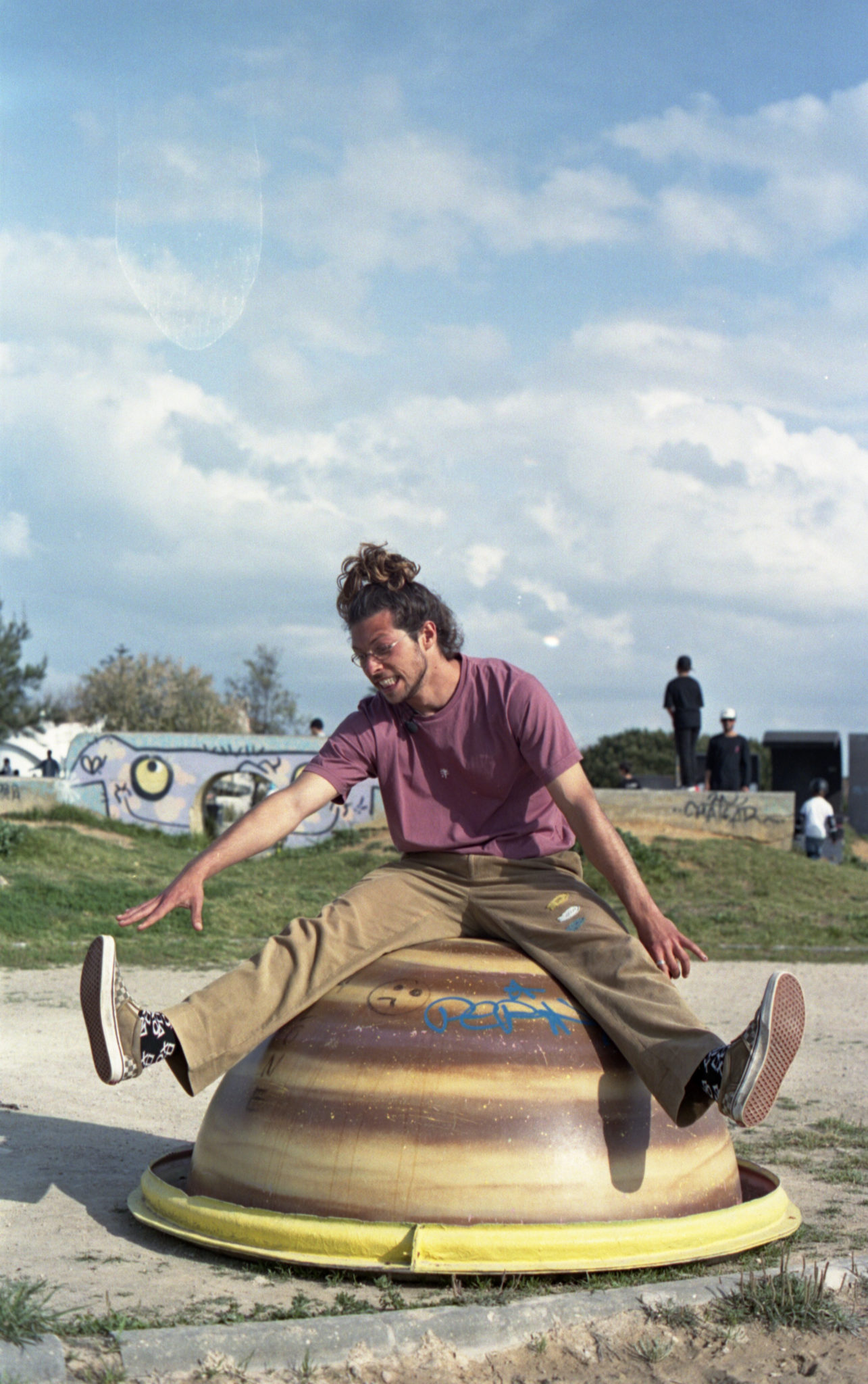
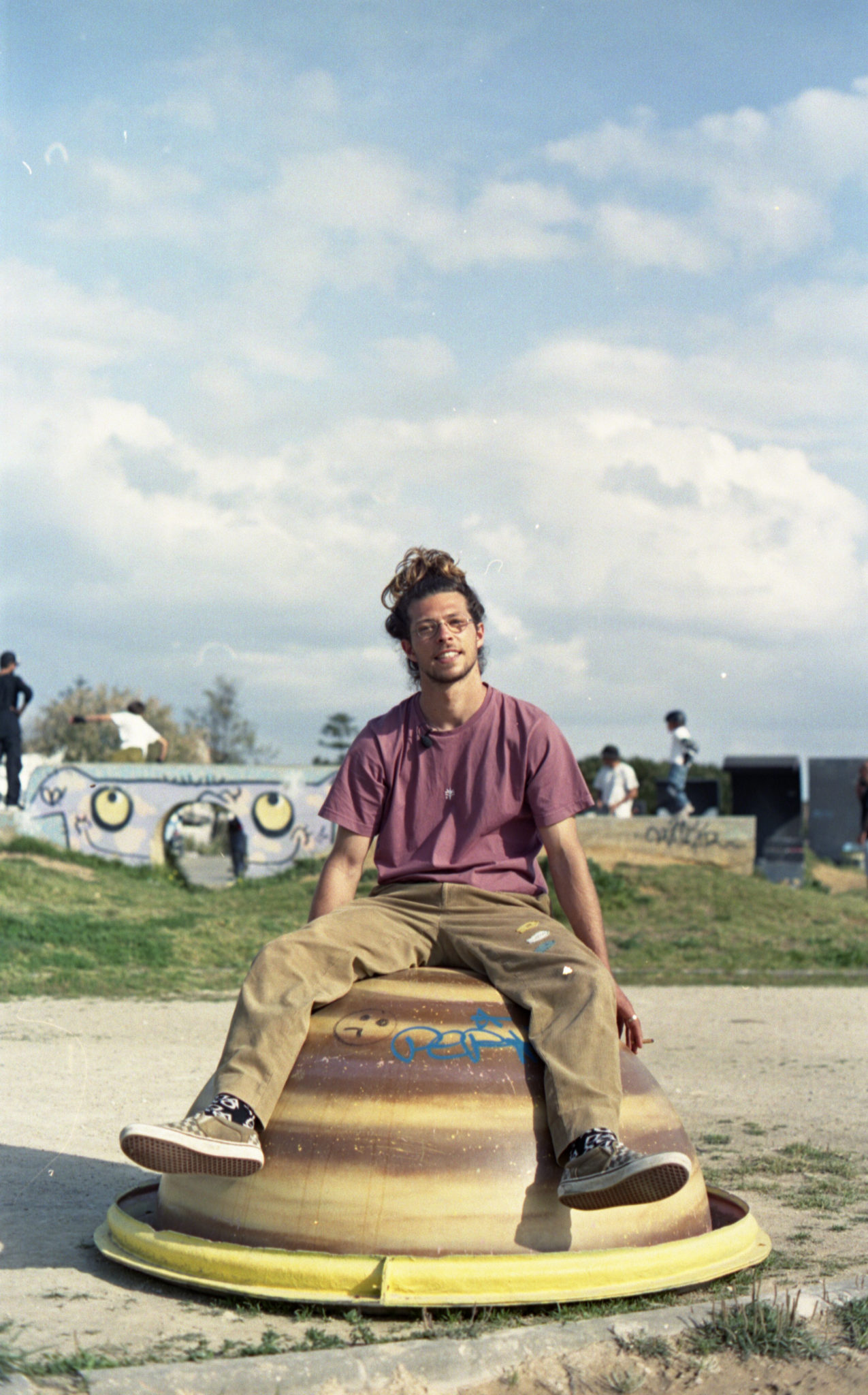
It is rare for you to sing, but you do it on “Figure Out” and in the recent Demo’s Vol.I (Soundcloud Tape). Did the desire to experiment with your voice come from necessity or interest?
I like to sing. Honestly, I think it’s a very interesting tool to use at the right time. The need to sing was due to the emotional merry-go-round I was going through, due to my relationship at the time. It ended up serving as an emotional outburst.
Do you feel that music made with emotion is not that present nowadays?
Yes, I think so. There’s a lot of good music being made out there. Now, to do something new and good, that’s really hard to find. New original things are no longer made, things are re-chewed.
I miss the emotions that those old rock songs would make you feel.
What was the most important lesson you learned from passing time with your circle of friends?
You do it for the love. Love won’t put bread on the table, but you do it for the love. You have no idea how many unpleasant situations the Zanibar had to go through along their journey. This is really for the love of music. The music industry is very complicated. You need to be well connected, to have nerve, to go ahead and not be afraid to speak up. If not, you don’t exist.
You’re practically a multi-instrumentalist. Did you ever take inspiration from Tash Sultana or FKJ for the interpretation of EXPERIENCER! at Collect?
I needed to decide how I was going to present my EP live and I ended up putting the show together as a multi-instrumentalist, more out of necessity than inspiration from them. My previous concerts had Ricky on the guitar, Braga on the bass, plus Pepas on the saxophone. I decided to stay away from that concept because they are 3 people who have their own lives, and I was only paying for dinner at the end of the night. They are great friends and they do it for the love. So, I decided to put on a show by myself. I bought a USB extender for my computer. I was able to connect an interface and get everything playing at the same time. I did my homework, organized everything, and built my live EP performance. Exposing myself like this in a place as connected to music as Collect was one of the biggest statements of my career. I think it made sense because my sound is contextualized with theirs. Collect, to complement their side of spinning records is also betting on a more acoustic live experience and they are giving voice to emerging artists. This coincided with my EP launch and with the ambition of presenting this project in a live show format.

How do you decide your songs are finished?
As a producer, I always wonder when is art finished. This turns out to be an incognita that will always hover in the artists lives. On a technical level, I am improving myself to understand this better. At the production level, I always try to produce sounds that are clean, good, and balanced. And in terms of composition, I think that it is a subjective thematic. More is less you know. Adding more sounds to achieve greater complexity can lead you to lose track of your objective. It’s about trusting your intuition and keeping it simple.
What made you feel that you were ready to release your first official project (Last Season) on Spotify?
I thought I had a more consistent project on a technical level. Last Season was such a statement that I gave a debut concert at Cosmos. It was Saint John Mary’s first concert, with Braga, Ricky, and Pepas. I was lucky to have them by my side.
Why the name Last Season?
Because at that time I was already progressing and evolving toward different production techniques, but, in the meantime, I had already recorded these songs, which already belonged to the last season.
Who is Gilberto, who appears in the song “Time gets old”?
Gilberto was my grandfather. It is a recording that I made of a conversation with him at his nursing home. He had mouth cancer and had to undergo radiotherapy, which soon triggered his mental illness. When he passed away, I played this song at his funeral. From that moment on, this song gained even more meaning for me. Even today, my grandfather is an inspiration to me. After my grandfather passed away, I thought a lot about the posture with which he saw life. He loved to eat, was proactive, and had a happy spirit. If there were problems, everything was to be solved. And he was always in a good mood. I try to show this proactiveness and keep his spirit close to me.
Do your parents support what you are doing?
Unconditionally. I consider myself really lucky. I am very privileged to have had all the support and family structure that I have. I believe that I am part of a very small percentage of people who have this opportunity. I would do anything for my parents. They never let me down and were always there for me. Also, they were the voice of reason when I made crazy requests and when I was getting out of the line, they were hard with me too.

How was your Erasmus experience and what relevance did it have for your path?
It was brutal. I did a lot of visits to Berlin, Hamburg, and Holland. At the operational level, those societies are much more effective and efficient. People think, idealize, plan, and do. The mindset is different. Arriving there early is arriving on time, arriving on time is arriving late, and arriving late is unacceptable. In cultural terms, Berlin is an epicenter. You land there and lose all your prejudices. You will see strange things, but you learn to accept others as they are. In Berlin, you drink from a culture with a very open mindset, completely multicultural, and great for any artist.
You did 2 European tours with the Zanibar Aliens, right?
I was present at the end of their first tour, which coincided with the end of my Erasmus, and also participated in a second tour in November, that lasted for 32 days. I took 222 analog photographs during this tour. It was inexplicable to embark on a 32-day trip across Europe in a van with my best friends. One time, we slept 6 guys in the van, plus the bags, plus the backline. I slept two palms from the ceiling, on top of a keyboard case and bass amplifier. It was hardcore. And at the same time, it was brutal to see the happiness of the people that were listening to the concerts. We went through so many different places, with spectacular cuisines and fantastic people who welcomed us. The tour served more to promote Zanibar than to make a profit. While they were playing, I would set up a stand to sell t-shirts and CDs. I was also the roadie and photographer. So, whenever it was to arrange or assemble material I helped because we took the amplifiers, guitars, and drums all in the van. Again, you do it for the love. And not everyone can say they went on a tour around Europe with a rock band. You finish every concert, and everybody wants to pay you a beer.
What were the best concerts and how did you set up the tour?
There was a crazy concert in Amsterdam and there was also a really good one in London. I think those two were the peak of the tour. We worked with an agency called Bullet Seed, which has contacts across Europe with bars and spots to play. They took care of organizing the tour’s logistics. Instead of going straight to the concerts with a good cachet and doing many kilometers without stopping, most of our concerts were scheduled in bars that were on the way to the big venues. That way we had places to sleep, and we still made a cachet of 150-200 euros per concert, which allowed us to cover meals and gasoline. And then when you get to London or Amsterdam, we would already make better money, which we could put aside. We slept in disgusting places. There was one time in France, which was horrible. I had to take off my coat to make a pillow because I didn’t want to touch the mattress with my head or hair. I slept clinging to Filipe. Consider that I was drunk and still didn’t sleep well, now imagine the place. But then we also slept in nice hotels in Spain and houses in the middle of France where there was rustic Camembert cheese and delicious delicacies.
What was the most important thing that you kept from these tours with Zanibar Aliens?
Every day was an incognita and you really had to lean on your friends and team. That was survival mode because when you’re on the road, you have nobody but yourself and your team. It is very important to believe in what you are doing and always give your best. I remember Filipe managed to fix the radiator of our van in the middle of France. He solved the problem with a tube and some washers. The van still works today. There was an episode at the end of the tour where we all had an important conversation about life. That only gave more strength to the statement “it is talking that you solve things”. It was important to have clear communication between everyone, to be honest about our expectations, and about what we could do for each other. Communication, communication, and communication. And believing in what we are doing.

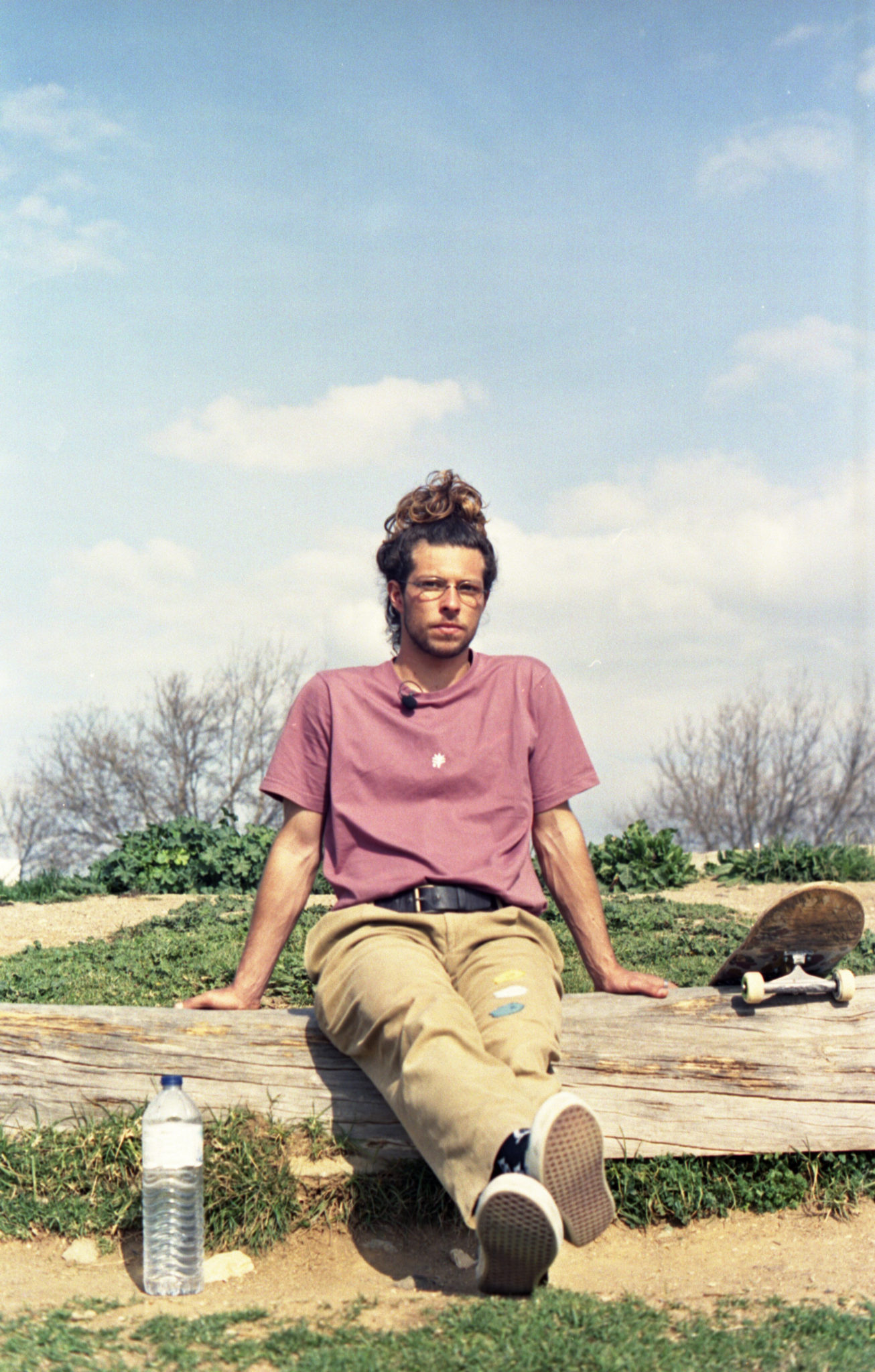
You mentioned earlier that you want to follow a path similar to that of Air. In what aspect?
In their sound. They are an inspiration regarding the fusion of certain musical elements, and I love the journeys they can create with their music. It’s a calm and full sound that I admire a lot.
Your last two singles are a little outside of what we would expect from Saint John Mary.
“Bonjour” was a collaboration I did with Salomé, a friend I made at ETIC. It turned out to be my first official collaboration and it was very well received.
“Boulangerie” was the result of Stckman coming into my life. I met him through mutual friends, and we had the opportunity to be in the studio together. Even in this next EP by Filipe Karlsson, you will notice influences from Stckman.
What is your philosophy on how you live life, and how do you relate it to skateboarding and surfing?
You can take the skateboard, leave the house, and go for a ride. You want, you do, you go alone. Surfing already has much greater planning involved. It has to do with the concept of enjoying, and taking the opportunity to relax, as you can spend an entire afternoon surfing. It’s a kind of relaxed lifestyle, with a simple and good quality of life, which has a lot to give.
Does the Saint in Saint John Mary have any meaning?
I like to think that when I touch someone’s life, it’s always for the best, to help, to laugh, or to give another perspective.
Finally, to end big, what drives Saint John Mary?
It’s the desire to provide people with something that isn’t just disposable music. I want it to be something that holds your attention and that accompanies you in your special moments. I want to try to reproduce in people what I felt the first time I heard Pink Floyd.
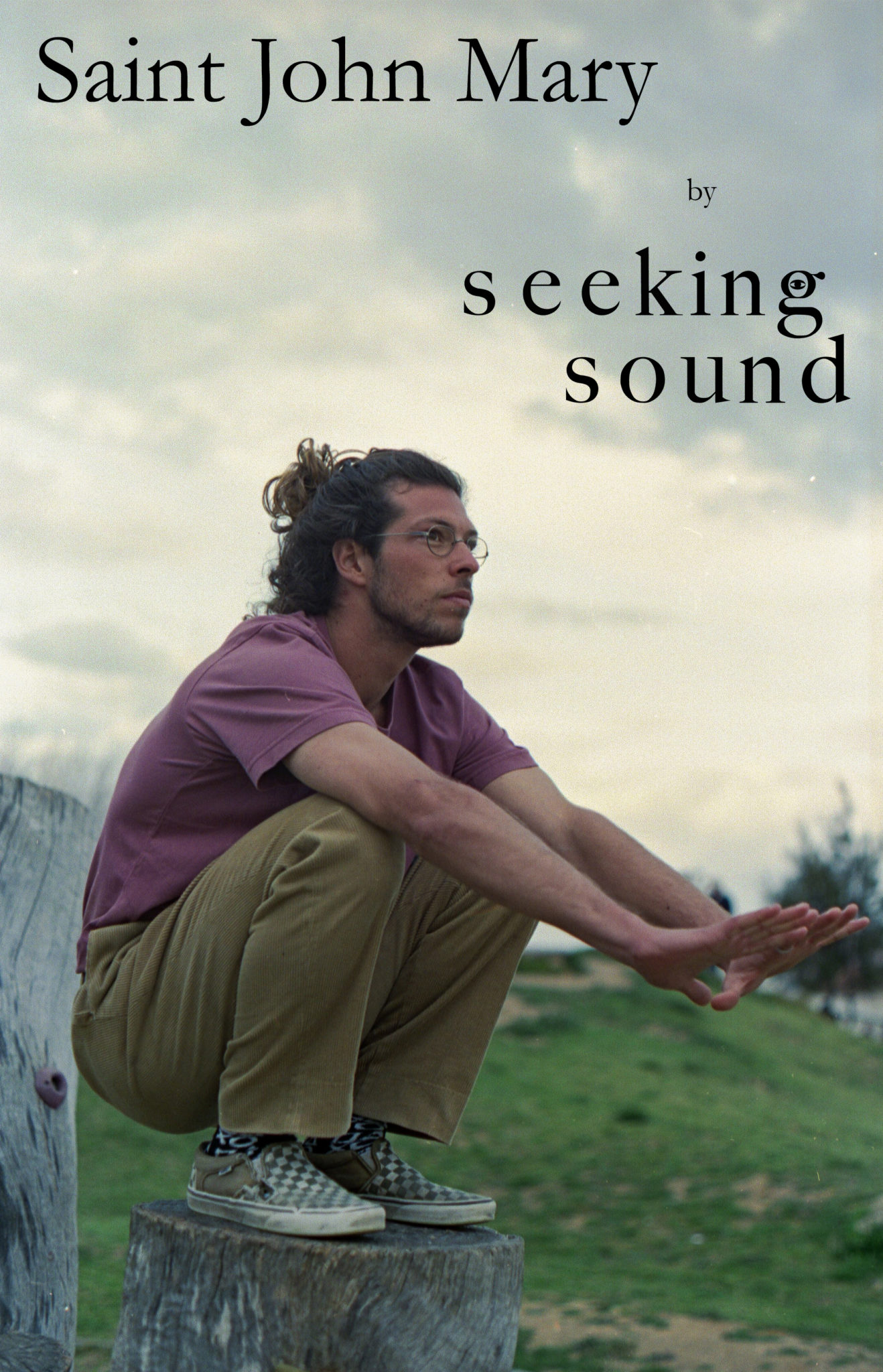
Since the 19th of March Saint John Mary released his EP EXPERIENCER!, which was presented at Collect, on the 20th of March 2022. His last single “Soustons Plage” was released on the 27th of June 2022.
Saint John Mary recently played along with Tito Romão in the opening of Rip Curl’s new shop in Ericeira. João Duarte also played EXPERIENCER! live in Skate Art “Um Espaço de Tempo” exhibition at Safra Lx.
Also, Saint John Mary is working on a new album with some unexpected and very cool collaborations, that will be released at the beginning of 2023.
